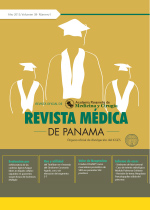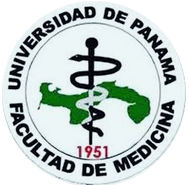Omeprazol en la profilaxis temprana de sangrado digestivo alto en la Unidad de Cuidados Intensivos del Hospital Santo Tomás.
Autores/as
DOI:
https://doi.org/10.37980/im.journal.rmdp.20221914Palabras clave:
omeprazol, profilaxis, sangrado digestivo altoResumen
Introducción: La profilaxis de sangrado digestivo alto con omeprazol es una práctica frecuente en pacientes admitidos a la UCI. Actualmente se investigan complicaciones infecciosas relacionadas con esta terapia. Objetivo: determinar la frecuencia con que se utiliza la profilaxis temprana con omeprazol en pacientes admitidos a la UCI y describir sus resultados clínicos. El objetivo secundario fue determinar los factores de riesgo asociados a úlceras de estrés más frecuentes.Método: se realizó un estudio retrospectivo, descriptivo en una muestra de pacientes admitidos a la UCI del Hospital Santo Tomás en el año 2019. Resultados: Se incluyeron 114 pacientes, con mediana de edad de 40 años (IQR, 28-58), predominio del sexo masculino (60.53%) y una mediana de tiempo en UCI de 12 días (IQR, 6-24). 111 pacientes (97.37%) recibieron profilaxis temprana con omeprazol. En el grupo que recibió profilaxis temprana, se presentó sangrado digestivo alto en 2.70% de los casos; 40 pacientes (36.04%) presentaron neumonía nosocomial y 1 paciente (0.90) presentó infección por Clostridium difficile. En la muestra estudiada, 110 pacientes (96.49%) utilizaron ventilación mecánica; 85 pacientes (74.56%) presentaron shock y 44 pacientes (38.60%) desarrollaron lesión renal aguda. Conclusiones: La profilaxis temprana con omeprazol es una práctica habitual en pacientes admitidos a UCI. El sangrado digestivo alto se presentó con poca frecuencia. Un tercio de los pacientes que recibió este tratamiento presentó neumonía nosocomial, siendo la infección por Clostridium difficile una rara complicación. El uso de ventilación mecánica y el shock fueron los factores de riesgo de úlceras de estrés más frecuentes.
Archivos adicionales
Publicado
Número
Sección
Licencia
Derechos de autor 2022 Infomedic Intl.Derechos autoriales y de reproducibilidad. La Revista Médica de Panama es un ente académico, sin fines de lucro, que forma parte de la Academia Panameña de Medicina y Cirugía. Sus publicaciones son de tipo acceso gratuito de su contenido para uso individual y académico, sin restricción. Los derechos autoriales de cada artículo son retenidos por sus autores. Al Publicar en la Revista, el autor otorga Licencia permanente, exclusiva, e irrevocable a la Sociedad para la edición del manuscrito, y otorga a la empresa editorial, Infomedic International Licencia de uso de distribución, indexación y comercial exclusiva, permanente e irrevocable de su contenido y para la generación de productos y servicios derivados del mismo. En caso que el autor obtenga la licencia CC BY, el artículo y sus derivados son de libre acceso y distribución.










